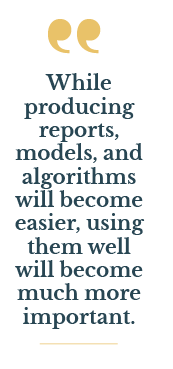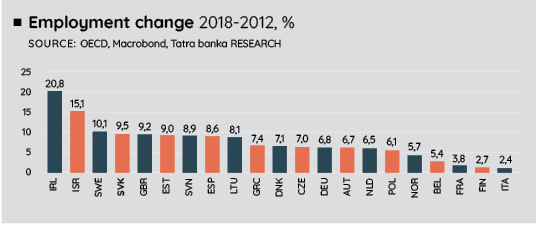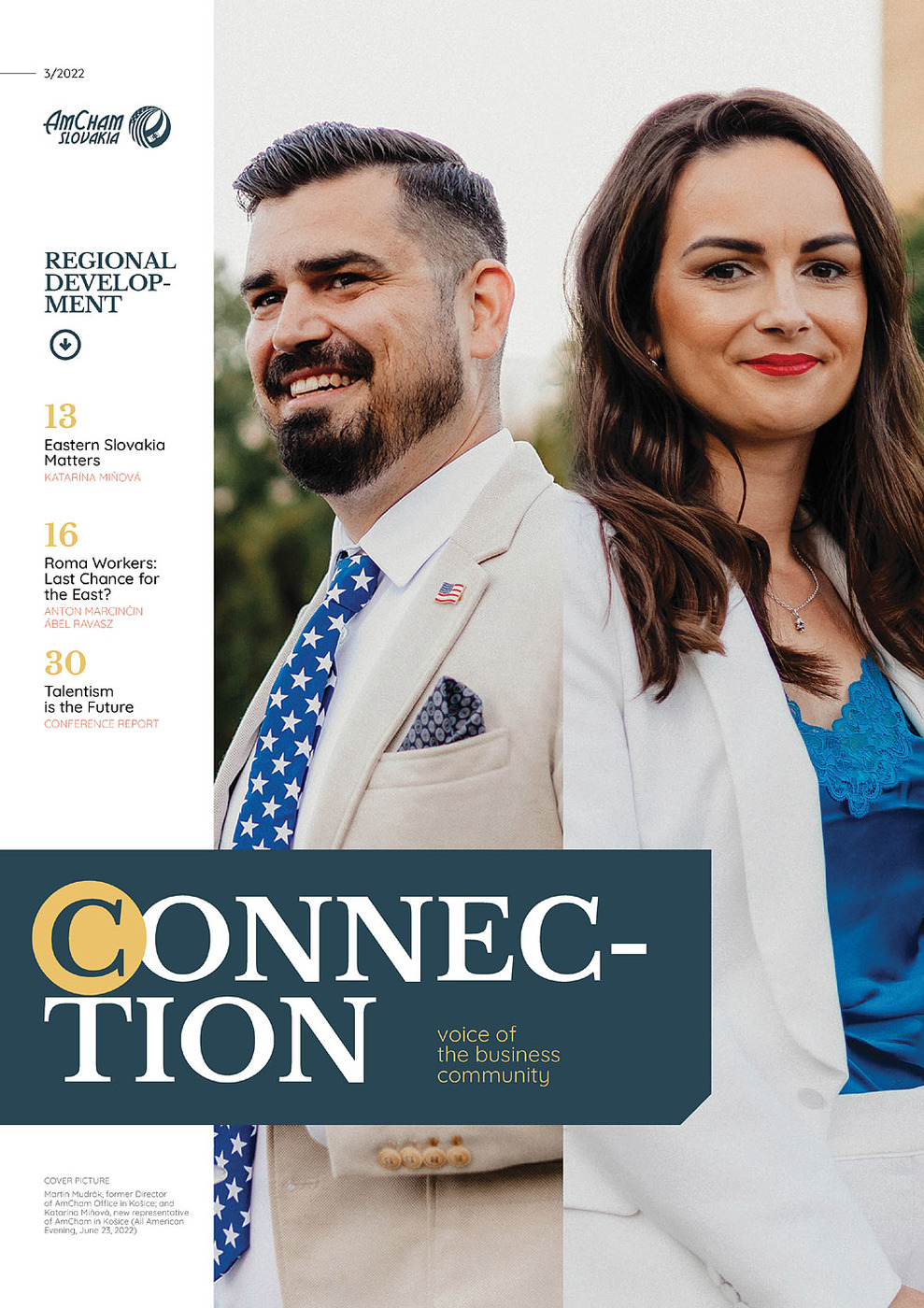I should have studied less
When people are talking about automation, they are often thinking about factories, or self-checkout, or automated driving. However, automation may be even faster in the world of ones and zeros. According to the OECD, from 2010 to 2015, automation has made more progress in office work than in manipulating the physical world, thanks to AI. And it is only the beginning.
In November 2021, OpenAI, the developer of a language prediction model GPT-3, opened its API to the public. Since then, numerous applications were developed by enthusiasts, ranging from writing jokes to translating plain English into computer code. The results are staggering, in fact, this very column may well be written by AI (it is not, yet). Programming may seem to be a safe career choice today, with plenty of job opportunities and good pay, but if the development of AI keeps up its trend, plenty of coders may very well lose their jobs in the near future, as there are already tools that can write code for the user. And it is not only language: AI can also compose music and draw pictures. What we thought of as creative work, which was supposed to be the safest from robots, is actually the next in line after factory work. Musicians, journalists, even lawyers and doctors can be potentially replaced by AI. The same applies to economists: it is easily possible that in a couple of years building a model of the economy will require a little coding and math skills and a commentary on inflation will be written by a machine. Should this author start looking for a new job?
And it is not only language: AI can also compose music and draw pictures. What we thought of as creative work, which was supposed to be the safest from robots, is actually the next in line after factory work. Musicians, journalists, even lawyers and doctors can be potentially replaced by AI. The same applies to economists: it is easily possible that in a couple of years building a model of the economy will require a little coding and math skills and a commentary on inflation will be written by a machine. Should this author start looking for a new job?
Automation is not job destruction
Automation is usually seen as a problem: it will destroy jobs, cause mass unemployment that will force us to introduce universal basic income, and so forth. The evidence, so far, paints a completely different picture.
In January 2021, the OECD looked at whether countries and jobs more at risk from automation performed worse. What the paper found was interesting: while the number of jobs more at risk from automation did grow more slowly, at the same time, countries with a higher share of jobs at risk of automation increased their productivity more. Also, installing more robots led to slightly higher job gains. While there were exceptions, the conclusion so far seems to be that more automation does lead to less job growth in areas which are automated, but the jobs themselves also become more sophisticated and productive and, hopefully, better paid. At the same time, the economy then creates other jobs in other areas of the economy. Automation does not destroy jobs; it decreases future job growth in one area, increases it in another, while at the same time increasing the productivity. Which is just what the doctor ordered for an aging middle-income country like Slovakia.
What does that mean for the author’s and others’ job prospects? Just like the modern factory worker in an automotive plant is becoming more of a robot supervisor than a manual laborer, a similar change should be expected to happen to white collar workers. No more combing over the code to spot a faulty semicolon, no more tedious generation of regular reports, the focus will move from doing to thinking. While producing reports, models, and algorithms will become easier, using them well will become much more important. Jobs will not be lost, but they will change significantly, and often for the better. AI is a new tool, just like the printing press decreased the need for handwriting, but increased the possibilities for writing.
Artificial intelligence is not intelligent
At the same time, we do have to mention the risks. Artificial intelligence is a bit of a misnomer, where the technical term intelligence means something different than in common language. Current AI is a set of more or less sophisticated statistical tools. AI does not think; it just takes inputs and comes up with an output: if the input is faulty, either through bias, poor data quality, or a simple mistake, the output will be faulty as well, regardless of the quality of the model. AI can provide answers, but it cannot ask questions, and the answers themselves may not be correct. Thanks to AI, the answers will become more numerous. This may lead to answering some questions, but also to muddying the waters. Thinking and creating will, for the time being, remain a purely human endeavor. My job should be safe for now.

Tibor Lorincz, Economic Analyst, Tatra banka, a.s.



Follow us